Berrien Family Resource Center Expands to Support Children and the Relatives Who Care for Them
Print This Post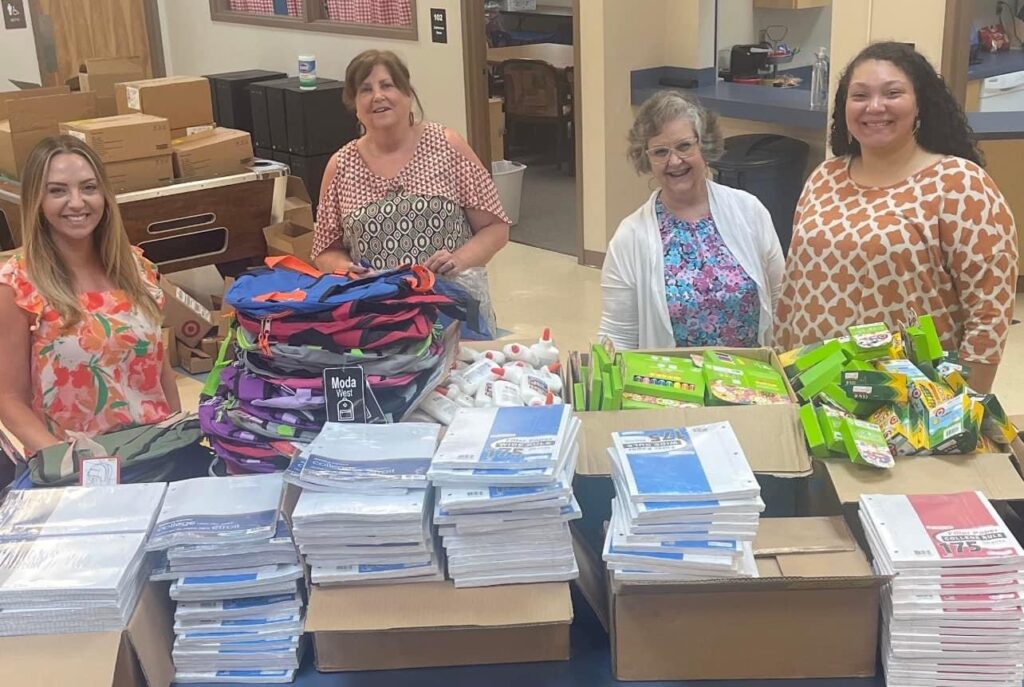
By Diana St. Lifer
Teenagers Leslie and Lexi moved in with their grandparents when they were infants and continue to live with their Nana since their grandfather passed away a few years ago. The girls are among the 55% of Berrien County’s children in custody who are placed with a relative, most of whom are grandparents—compared to the state’s average of 4%.
Familiar faces at the Family Resource Center in Berrien, the family participates in the Kinship Care Support Group—a helpful way to get acquainted with others going through similar experiences, and where kinship families receive the services, assistance, and tools they need to thrive.
“It brings us closer and connects us with kids who are in a similar situation,” said Leslie. “And Nana says the adults help each other by coming together and sharing their struggles.”
The rate of children in Berrien with a substantiated incident of child abuse or neglect (per 1,000) was 9.4% in 2020, compared to Georgia’s rate of 3.6%. The rate of abuse in Berrien was 4.8% compared to the state’s 2%, and Berrien’s rate of neglect was 5.7% compared to the state’s 1.9%. And census tracts reveal higher rates of abuse and neglect in the most rural areas of Berrien, according to Sara Paulk, executive director of Family Connection/Communities in Schools of Berrien County, a Georgia Family Connection Collaborative.
Located in Nashville, the 5,000-square-foot Family Resource Center serves as a meeting place for local and civic organizations and is home to:
- the Court Appointed Special Advocate program;
- the adoption services assistance program;
- the new Berrien Babies literacy program, which provides young children with a free book each month from birth through age 5;
- the highly utilized Kinship Care Program, which provides free therapy to all children and caregivers and financial assistance to help with adoption fees; and
- dozens of other services and programs offered through the Collaborative.
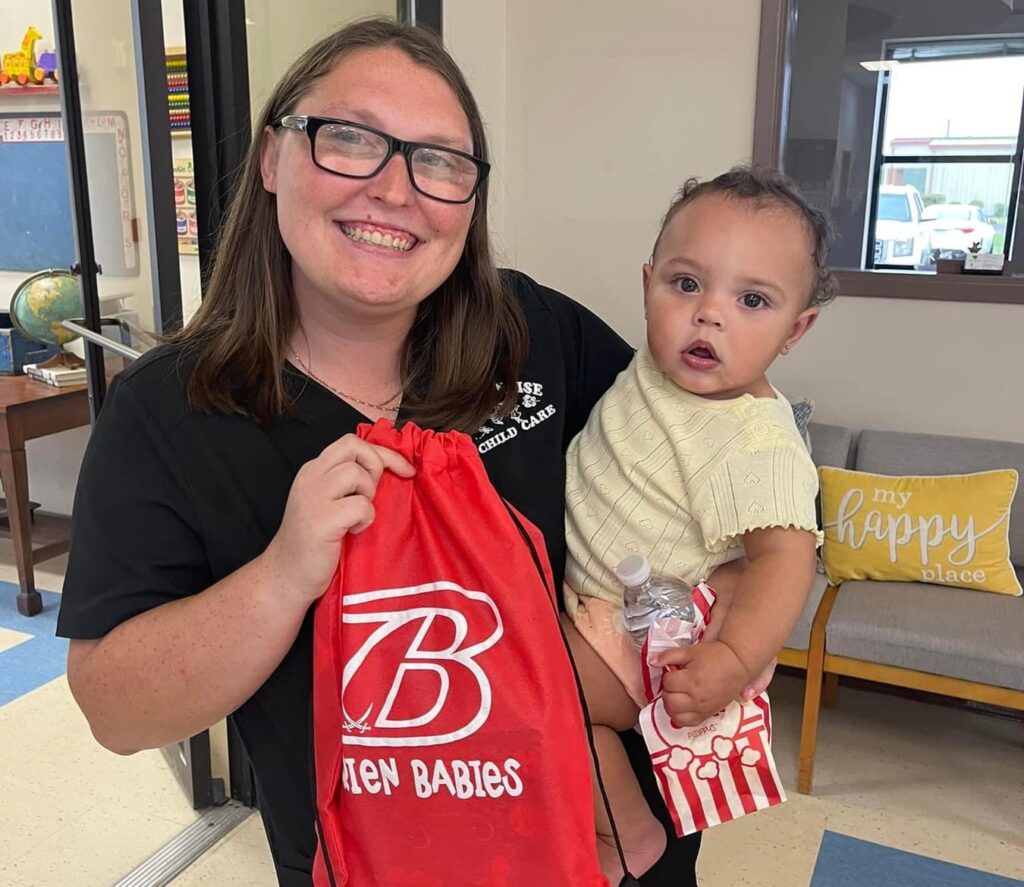
Families view the Center as a safe, stigma-free environment where they can receive support and services in a variety of areas, including parenting and student emotional support, autism support groups, and drug court classes that offer a cognitive-behavioral approach to teach participants strategies for avoiding substance abuse.
Twice a month, 50 kinship caregivers and children attend an evening support group where caregivers connect while the children are served dinner and participate in supervised activities. Meetings are held monthly for two groups, one for children through fifth grade and another for grades six through 12.
“Providing child care gives attendees participating in the support group peace of mind that their children are in a safe and caring environment,” Paulk said. “A strong support group provides tangible and emotional support, decision-making assistance, social companionship, and help with self-esteem. Families are taught how to identify and access community-based resources to best meet their needs.”
The Collaborative—one of nine participating in Georgia Family Connection Partnership’s (GaFCP) Kin Caregiver Support Cohort since 2019—recently joined the Family Support Cohort and added two private meeting rooms to the Family Resource Center for tutoring and therapeutic counseling, thanks to an investment from the Georgia Division of Family and Children Services (DFCS) Prevention and Community Support Section.
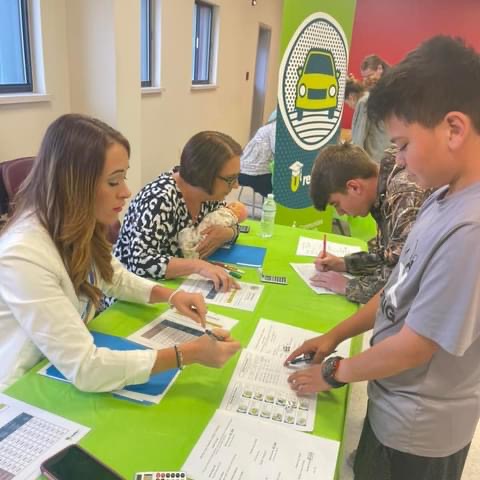
Counseling sessions provide youth with an opportunity to talk with professionals about the challenges they face at home and school.
“We joke, saying we’re in couples counseling,” Leslie said, evoking a chuckle from both teens. “Our therapist helps us see other perspectives and think about the choices we’re making.” “I love therapy,” added Lexi. “And we know we can call on her anytime.”
Paulk said the rooms may appear to be a minor addition to the Center but will have a major impact. Offering designated areas to provide therapy is a huge asset for families, thanks to the privacy these rooms afford.
“Most families in kinship support have experienced some type of trauma,” Paulk explained. “Some have experienced this trauma where they live and with people who possibly are residing in the same household, so they would be unable to speak freely at therapy if our private rooms weren’t available.”
Paulk said the new rooms will increase the likelihood of families agreeing to therapy in familiar, comfortable surroundings. “Therapy improves a multitude of emotional, behavioral, and educational concerns, helping our families better understand and learn how to amend problematic feelings and behaviors,” she said.
The Center also provides services, support, instruction, and resources to help students accelerate their learning progress, meet academic standards, address development needs, and succeed in school. The new rooms also will be used for tutoring, which currently takes place in busy areas where students often get distracted.
In addition to educational support, the Collaborative discovered an increase in requests from families for food and essentials since the pandemic, which exposed the high number of grandparents raising their grandchildren and, in some cases, great-grandchildren.
“The pandemic hit our rural community when the needs of our impoverished county were at an all-time high, which then escalated during the pandemic,” Paulk said. According to KIDS COUNT data, 26.6% of Berrien children were living in poverty in 2020. The state average was 19.5%. “Our goal is to provide relief to caregivers, which will help reduce stress and support family stability,” she said.
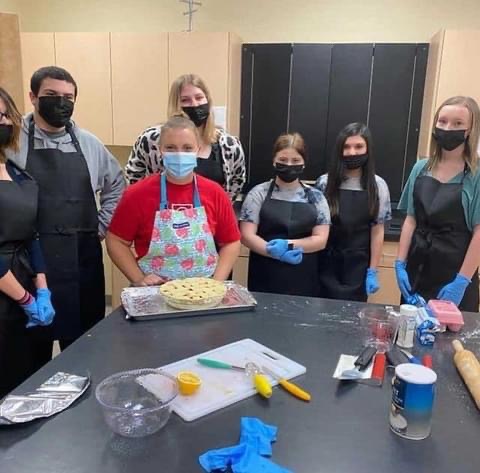
While the Center has always had food on hand to distribute to families, the Collaborative recently established a partnership with Second Harvest of South Georgia—the leading hunger-relief organization in the region and the second largest food bank in the state—to increase access to food and other essentials like diapers.
The Collaborative also is working to amend another issue in the county—access. “It’s difficult for families in these areas to get to the Family Resource Center and access services because transportation is a huge barrier,” said Paulk. “We also learned from the census tract data that we were focusing our outreach all within the county seat, and that needed to change.”
The Collaborative partnered with neighboring counties so residents who live closer to that county’s resource center can access services there. Families receive gas cards as incentives, and awareness campaigns now target rural areas.
Beyond that, the Collaborative plans to utilize part of DFCS’s cohort investment to bring the Parents as Teachers (PAT) program to Berrien, because 60% of 3- and 4-year-olds in Berrien didn’t attend preschool between 2016 and 2020. This evidence-based home visiting model provides an array of services to families with children, prenatal through kindergarten, and offers deep insight into early childhood development—building strong communities, thriving families, and children who are healthy, safe, ready for school, and succeed when they get there.
“Our community’s needs are ever changing,” Paulk said. “Our Family Resource Center will continue to be a place that represents help—a place where families can come together in our community to find the resources they need.”
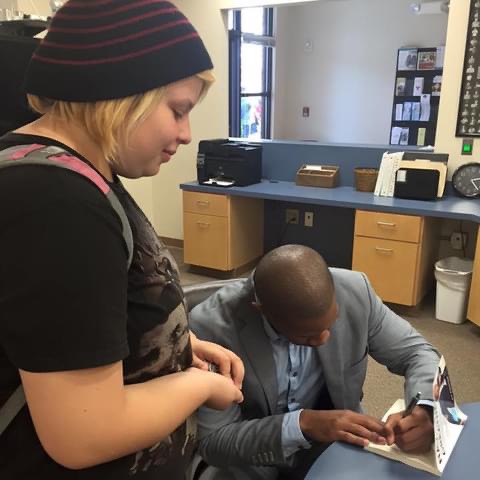
Today Leslie and Lexi intern at the Center with Paulk two days a week, jumping in to lend a hand on grant work and various projects. “Every day looks a little different for them,” said Paulk. Leslie and Lexi also intern for the City of Nashville three days a week, assisting with clerical work, community events and programming, and the local farmer’s market.
Their hard work extends to the classroom. Leslie and Lexi will graduate from high school a year early after taking an extra class each quarter—and they’ve both earned scholarships to attend college from the Collaborative, the City of Nashville, and local businesses.
Leslie and Lexi said that without the support and encouragement of the Center’s staff, they wouldn’t even have considered college an option. “Everyone there opened our eyes to what’s possible,” Leslie said. “We know we can go to the Center anytime and talk about anything. Everyone genuinely cares about us.”
The sisters have decided to go to Wiregrass Georgia Technical College, where one plans to study phlebotomy and the other is undecided. While their career paths may differ, Leslie and Lexi will navigate these next steps like they always have—together.
“I’m proud of the participants in the Berrien Kinship Support Group and the success each family has achieved during their time with us,” said Paulk. “It’s been a blessing to see youth and their caregivers excited about our programs and to spend time at our Family Resource Center with our staff and volunteers. It’s crucial to show our families there’s an organization and people who care about them and are willing to do whatever’s needed to support them.”
Contact:
Krystin Dean
GaFCP Communications Specialist
706-897-4711
krystin@gafamilyconstg.wpengine.com
Follow us on Twitter: @gafcpnews
Connect with us on Facebook.
